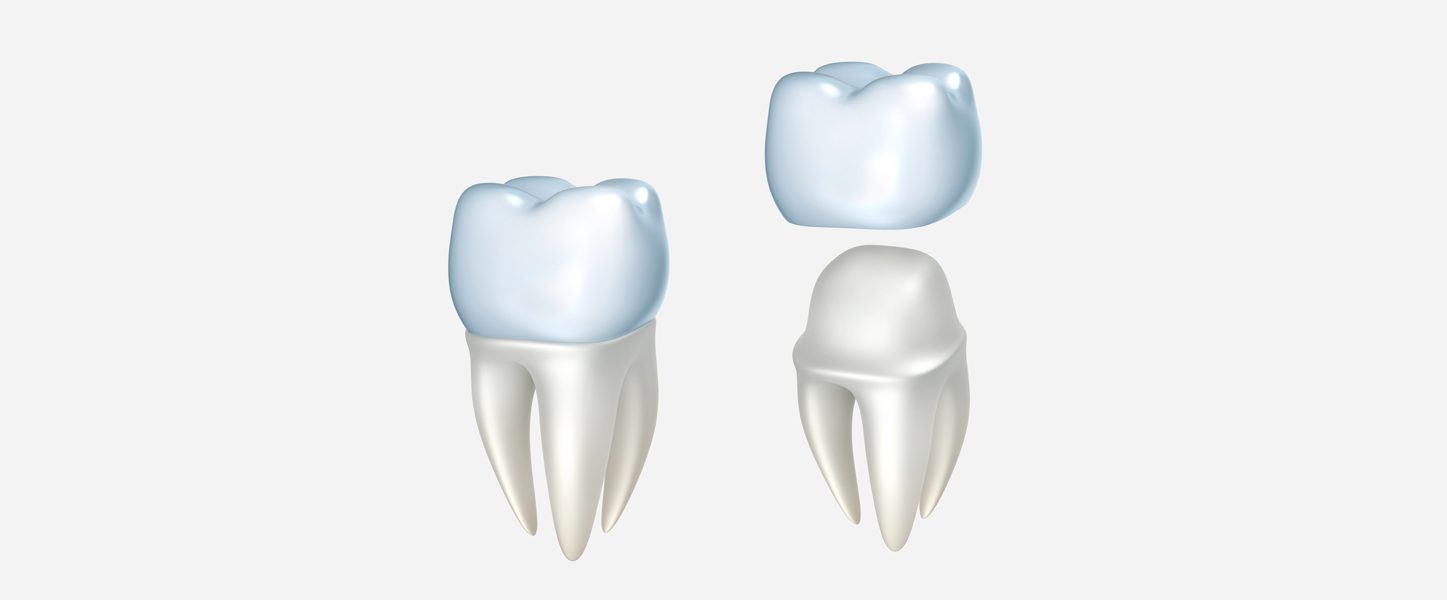Worried About Your Dental Crown Falling Off? Here’s How to Prevent It
July 24, 2025
A sudden shift in your bite or the sight of a crown in your hand can spark instant worry. But there’s no need to panic. With the right care, knowledge, and timely action, you can avoid the hassle. This blog offers clear, expert-backed advice to keep your dental crown secure, functional, and exactly where it belongs.
Why Do Dental Crowns Fall Off?
Dental crowns are designed to last. They’re strong, custom-fit, and bonded to your natural tooth. But even the best crown can run into trouble if the foundation underneath weakens or if daily habits take a toll. Here’s what usually causes a crown to loosen or fall off:
- Tooth Decay: If the natural tooth under the crown gets a cavity, the bond weakens.
- Wear and Tear: Grinding teeth (often at night) or chewing hard foods can loosen the crown.
- Poor Fit: If the crown wasn’t perfectly shaped or bonded, it might not last.
- Old Age: Crowns aren’t forever. Over time, the cement holding them can wear out.
- Sticky Foods: Caramels, taffy, or even tough bread can tug at your crown with every bite.
Think of your crown like a jacket for your teeth. If the tooth underneath starts to break down or shrink, the crown doesn’t have much to hold on to.
How to Prevent Your Crown from Coming Loose
The best way to avoid a loose crown is through small, consistent habits. You don’t need major changes—just a little attention and care. Here’s what you can do:
Brush and Floss Daily
Yes, it’s basic—but it works. Keep the gumline clean so bacteria don’t sneak under the crown and cause decay. Choose a soft-bristled toothbrush and non-abrasive toothpaste.
Skip the Chewy Stuff
Avoid things like gum, taffy, or sticky candy. These treats can pull the crown loose without you even realizing it.
Get a Night Guard if You Grind
Teeth grinding (bruxism) is a common reason crowns crack or come off. A custom-fitted guard protects your teeth while you sleep.
Don’t Use Your Teeth as Tools
Opening a bottle cap or tearing into a bag with your teeth is a fast way to damage your crown—and your real teeth, too.
Keep Up with Dental Visits
Schedule checkups every six months. Your dentist near you can spot early signs of problems before the crown becomes unstable. For patients living in the area and need routine care or ongoing support with dental crowns in Phoenix, AZ, regular visits ensure long-term success and peace of mind.
Pro tip: If you’ve had your crown for a few years, ask your dentist to check the seal and structure.
What to Do If Your Crown Feels Loose
Sometimes, you’ll feel a wiggle before the crown actually comes off. Other times, you’ll notice a strange taste or smell around the crown—both signs that something’s not right. Don’t panic, but act fast.
Step-by-Step Action Plan:
- Stop chewing on that side: Don’t put pressure on the crown.
- Call your dentist: Make an appointment as soon as possible.
- Keep it clean: Brush gently and rinse with warm salt water if there’s discomfort.
- Save the crown: If it falls off, store it safely. It might be re-cemented.
When It’s Time to Replace a Crown
Even a well-placed crown has a shelf life. On average, crowns remains in good condition between 5 and 15 years. But the timing for a replacement depends on how you treat it and what’s going on underneath.
Signs It’s Time for a New Crown:
- Pain or sensitivity around the crown
- Visible damage or cracks in the crown
- Gum recession exposing the tooth under the crown.
- Frequent food trapping near the crown’s edge
- Bad breath that lingers even after brushing
Sometimes, you’ll feel something’s off. Maybe the bite doesn’t feel right anymore. Maybe floss keeps snagging. These are quiet signs that your crown isn’t doing its job anymore. Don’t ignore them.
A trusted local dentist or a dental clinic in Phoenix, AZ, can take a look and guide you through your next step. Whether it’s re-cementing, reshaping, or replacing the crown altogether, acting early helps protect your smile.
Final Thoughts
Your crown plays a key role in keeping your smile strong and stable. Don’t ignore changes—act early, stay informed, and protect your dental health. If your crown feels off or you’re due for a checkup, Dental Therapy – Phoenix is here to help. Book your visit today and give your smile the care it deserves.

Dr. Tahany Whiting, DMD.
Dr. Whiting is a dedicated Arizona native who combines clinical excellence with a warm, patient-focused approach. After earning her Doctorate in Dental Medicine from Midwestern University, she is passionate about educating patients and customizing treatment plans.
Her mission is simple: to treat every smile with thoughtful, evidence-based care and compassion.
Why patients choose Dr. Whiting:
- Over 10 years of experience in General & Biologic Dentistry
- Graduate of Midwestern University College of Dental Medicine (DMD, 2014)
- Member of AAID, AGD, IABDM, and ICOI
- Attends advanced training and international dental conferences regularly
